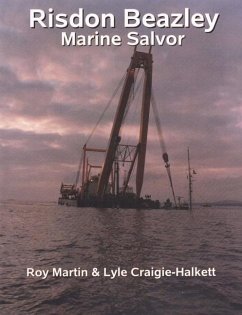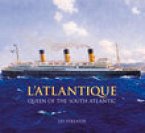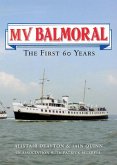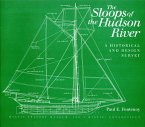The Risdon Beazley fleet of nineteen vessels were requisitioned in 1940, these were handed back to him to manage together with ten others. Seventeen newly built Admiralty salvage ships joined the fleet during the war, plus thirteen non-propelled lifting craft. The vessels were manned by civilian merchant seamen. Three ships and a barge were lost due to enemy action. The first new ships worked in the Mediterranean and as far east as Colombo, they entered newly occupied ports often before the bomb disposal teams had completed their work. Risdon Beazley were responsible for the whole salvage fleet employed in the D-Day landings and their ships went on to clear ports in Northern Europe. In his book 'The Ocean on a Plank' Captain Doust, the Deputy Director of Admiralty Salvage, says that Risdon Beazley salved "over 3,500 ships and 3.5 million tons of cargo - a contribution of vital importance to the war effort beyond the reach of any other of the managers. He got no official recognition for it". While these figures overstate the number of operations, it is correct to say that their achievements were beyond the reach of other managers. After the war the company specialised in the recovery of metal cargoes, plus general salvage and wreck removal. When the Admiralty needed to recover the remains of the Comet airliner they sent a request to Mr Risdon Beazley, he sent men and equipment, for this he was made a CBE. An RB team re-floated Brunel's steamer 'Great Britain', which was transported to Bristol by Ulrich Harms. This book could not have been written without the help of people who worked for the company both during and after the war. The writers, both former employees, have uncovered much previously unpublished information.
Hinweis: Dieser Artikel kann nur an eine deutsche Lieferadresse ausgeliefert werden.
Hinweis: Dieser Artikel kann nur an eine deutsche Lieferadresse ausgeliefert werden.








